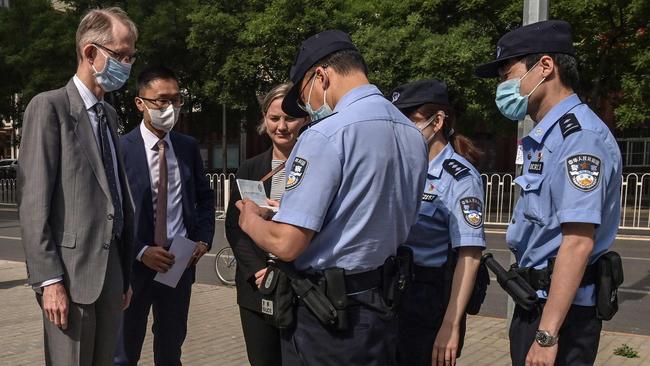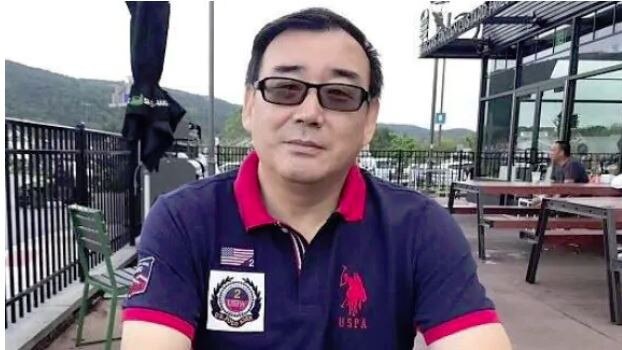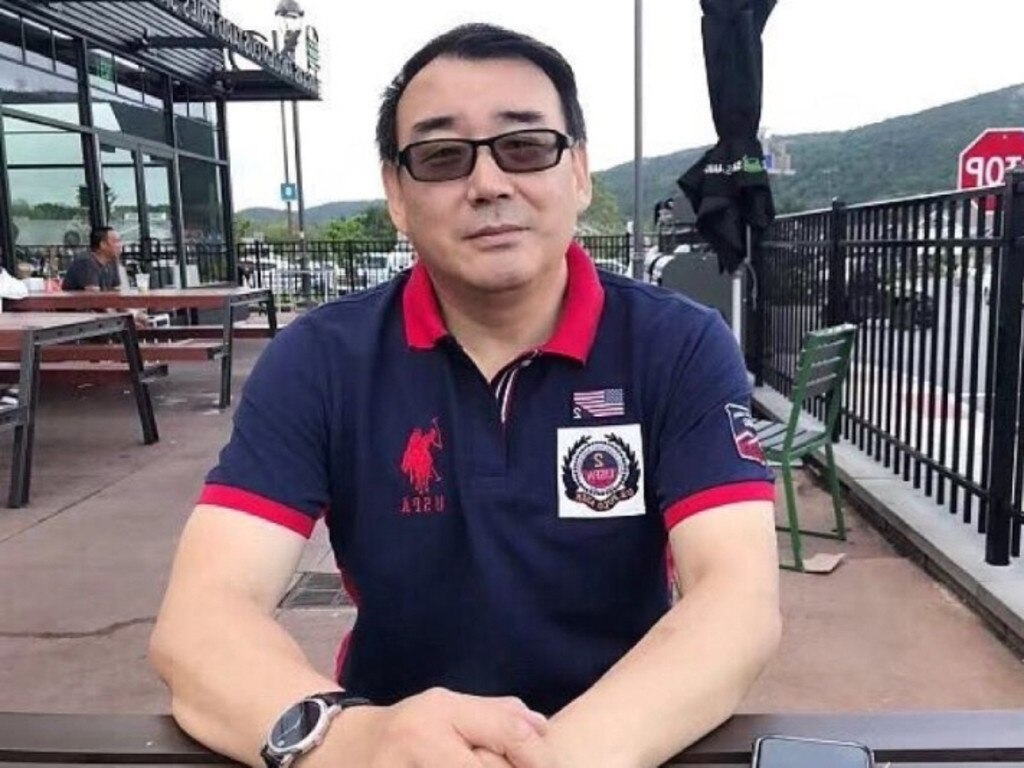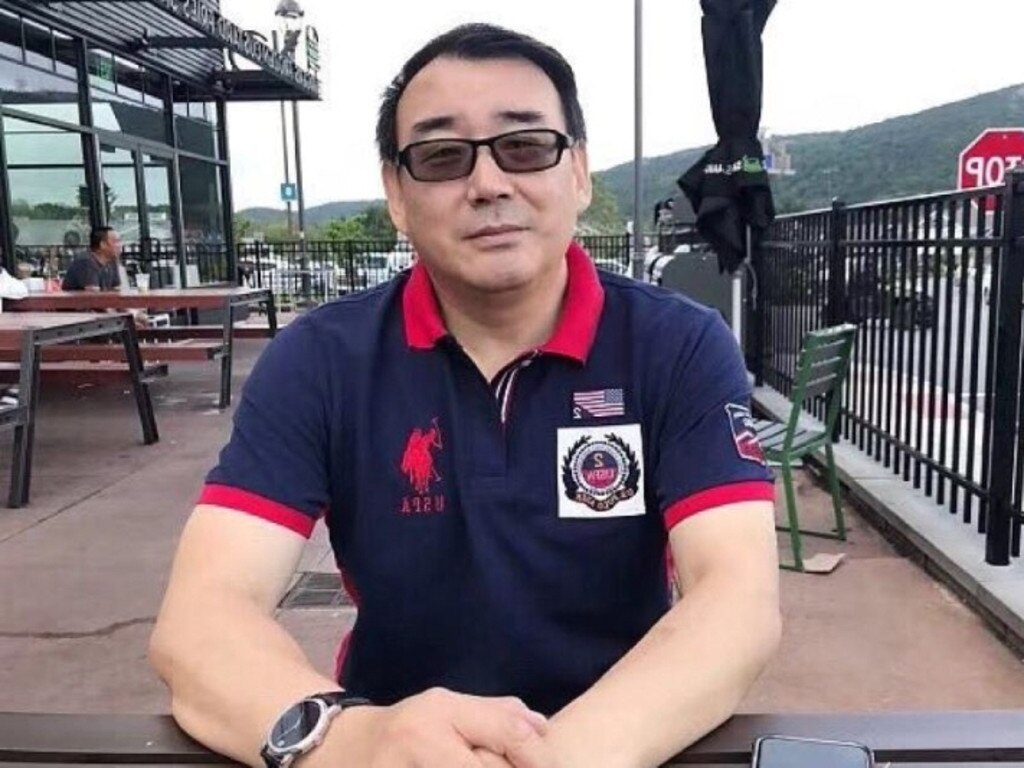China shuts Australia’s ambassador out of Yang Hengjun trial
China’s foreign ministry has defended the secrecy around the trial of Australian citizen Yang Hengjun after Australian diplomats were denied entry to the heavily-policed, one-day hearing in Beijing.

Australia’s ambassador to China has been denied entry to the Beijing trial of Australian citizen Yang Hengjun.
The trial — in which the popular writer was accused of espionage — remained cloaked in secrecy after Thursday’s one-day hearing.
Ambassador Graham Fletcher and his colleagues were denied entry, with Chinese officials citing the pandemic and national security concerns.
“This is deeply regrettable and concerning and unsatisfactory,” Mr Fletcher said, addressing media gathered outside the heavily policed Beijing Number 2 Intermediate People’s Court.
“We have had long-standing concerns about this case, including lack of transparency, and therefore have concluded it is an instance of arbitrary detention.”
As he spoke, minutes before the trial began on Thursday morning, plainclothes police filmed the assembled journalists, who were also denied entry.
China’s foreign ministry said the court would announce the verdict at a later date and defended the secrecy. “The Yang Hengjun case involves state secrets, therefore it is completely reasonable and lawful that it was not heard openly and no one was allowed to observe,” foreign ministry spokesman Zhao Lijian said. “This is a common practice in many countries.
“China firmly rejects Australia’s groundless moves to disrupt China’s handling of the case.”
Dr Yang was detained by secret police in January 2019 at Guangzhou airport. The 56-year-old pro-democracy commentator was once an officer with China’s Ministry of State Security, the agency that detained him.
During his time in detention — which included more than 300 interrogations — he has not been able to see or speak to his wife, Yuan Xiaoliang.
Australian journalist Cheng Lei — an anchor of state broadcaster China Global Television Network — also remains in custody after being detained in August on claims of supplying state secrets overseas.
Speaking before the trial commenced, Foreign Minister Marise Payne repeated the Morrison government’s concern about the lack of transparency.
“I very much hope Dr Yang is provided with a fair trial but we have not seen any explanation or evidence of the charges brought against him,” she said.
Dr Yang, who became an Australian citizen in the early 2000s, has protested his innocence throughout his detention.

In the days before the trial, the court rejected his request to respond in detail to the charges and “evidence” against him, which have not been disclosed.
“They can fabricate whatever statement they want,” said Feng Chongyi, Dr Yang’s friend and former PhD supervisor at Sydney University of Technology. “That is the evil of a closed-door trial.”
Mr Feng said he was “very grateful” that Mr Fletcher tried to enter the court. “It was an heroic act,” he said. The Chinese criminal justice system has a more than 99 per cent conviction rate. A formal sentence is not expected to be delivered for months and is expected to be for 10 years or longer.
His supporters believe that given his health, any jail term beyond five years would be an effective “death sentence”. Dr Yang has two adult sons in Melbourne, while his wife and stepdaughter have been prevented from leaving China.
In a message to friends and family given through Australian consular officials in March, the writer said he had “no fear”, despite his deteriorating health.
“Victor Hugo said, ‘Supreme happiness is the conviction of being loved’. So you know, I love you all, and I know that I am loved. Please bring my love to all the people concerned about my situation,” he said. “If the worst comes to the worst, if someone wants to take revenge on me for my writings, please explain to the people inside China what I did, and the significance of my writing to people in China.”







To join the conversation, please log in. Don't have an account? Register
Join the conversation, you are commenting as Logout